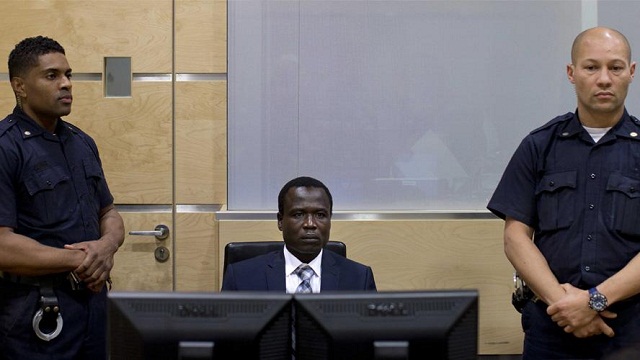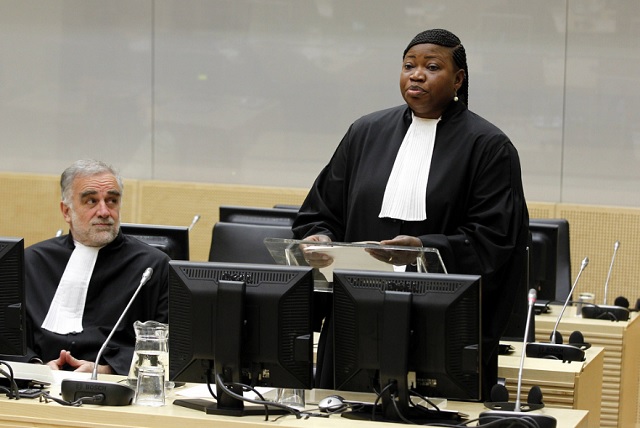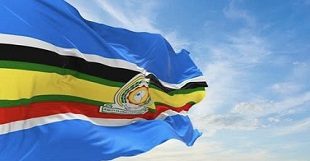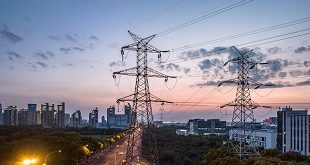
The trial in the case of Dominic Ongwen, a top commander of Uganda’s rebel Lord’s Resistance Army, is scheduled to open at the International Criminal Court (ICC) on Tuesday, December 6 – 2016.
The Prosecutor versus Ongwen case will be before Trial Chamber IX of the ICC, composed of presiding Judge Bertram Schmitt, Judge Péter Kovács, and Judge Raul Cano Pangalangan. Ongwen is charged with war crimes and crimes against humanity.
The trial in the Hague starts as the ICC, a tribunal set up in The Hague in 2002 to prosecute the world’s worst atrocities, is besieged by the withdrawal notices of several African countries accusing it of being biased.
Gambia recently become the third country in just a matter of weeks to announce it plans to withdraw from the International Criminal Court, a personal blow to the tribunal’s chief prosecutor Fatou Bensouda, a Gambian lawyer and former justice minister.
The Gambia’s move comes after South Africa dealt the world tribunal a huge setback by announcing its intention to leave, in the wake of a similar move by Burundi earlier in October.
Of the 124 countries to have ratified the Rome Statute since 1999, 34 are African. Of the current 10 full investigations, nine are underway in eight African countries.
Cases involving a full investigation of alleged crimes in the Central African Republic, Uganda, Mali and the Democratic Republic of Congo were all referred to the ICC by the governments of those states.
Cases in Libya and the Sudanese region of Darfur were referred by the UN Security Council. Only in Kenya and Ivory Coast did the prosecutor initiate such investigations, and even in these countries, the governments cooperated to some extent with the court.
It takes a year from when a notice of withdrawal is formally submitted to the UN secretary general for the move to be completed.
But any country is still beholden by its previous engagements to the court and the Rome Statute which underpins it.
Despite the threats of withdrawal by the three countries, Gabon last month referred a case to the ICC after deadly unrest was triggered in the central African nation over disputed elections, analysts pointed out.
The charges
Ongwen is accused of 70 counts of war crimes and crimes against humanity related to attacks against the civilian population in the former IDP camps of Lukodi, Pajule, Odek and Abok between October 2003 and June 2004, including: attacks against civilian population; murder and attempted murder; rape; sexual slavery; forced marriage; torture; cruel treatment of civilian and other inhumane acts; enslavement; outrage upon personal dignity; conscription and use of children under the age of 15 to participate actively in hostilities; pillaging; destruction of property and persecution.
It is further alleged that from at least 1 July 2002 until 31 December 2005, Dominic Ongwen, Joseph Kony, and the other Sinia Brigade commanders were part of a common plan to abduct women and girls in northern Uganda that were then used as forced wives and sex slaves, tortured, raped and made to serve as domestic help; and to conscript and use children under the age of 15 to participate actively in hostilities in the LRA.

The Ongwen trial
Ongwen, himself a former child soldier who became one of the most LRA’s most feared leaders, is charged with war crimes and crimes against humanity over his role in the group’s reign of terror in northern Uganda between 2002 and 2005.
Ongwen, who surrendered early last year and was handed over to the ICC, is the only senior LRA commander currently in the court’s custody.
The LRA’s elusive chief Joseph Kony, who has also been charged by the ICC with war crimes, is the subject of a decade-long manhunt.
The trial will open with the reading of the charges against Ongwen. The Judges will verify that the accused person understood the nature of the charges. The Judges will ask him whether he makes an admission of guilt or pleads not guilty to the charges.
Oral opening statements will be delivered by the Office of the Prosecutor and the Legal Representatives of Victims. The trial will then resume on 16 January 2017, when the Prosecution will begin to present its evidence and call its witnesses before the judges.
The charges
Ongwen was once Kony’s deputy and one of the top commanders of the LRA, which is accused of slaughtering more than 100,000 people and abducting 60,000 children in a bloody rebellion against Kampala.
Prosecutors accuse him of being the “tip of the spear” of the group that has sown terror across several countries in central and eastern Africa.
The LRA first emerged in northern Uganda in 1986, when it took up arms in the name of the Acholi ethnic group against the government of President Yoweri Museveni.
Over the years it has moved freely across porous regional borders, shifting from Uganda to sow terror in southern Sudan before heading into northeastern Democratic Republic of Congo, and finally crossing into southeastern Central African Republic in March 2008.
Combining religious mysticism with astute guerrilla tactics and bloodthirsty ruthlessness, Kony has turned scores of young girls into his personal sex slaves while claiming to be fighting to impose the Bible’s Ten Commandments.
Born in 1975, Ongwen was transferred to The Hague more than a year ago, shortly after he unexpectedly surrendered to US special forces operating in the Central African Republic.
****
editor@independent.co.ug
 The Independent Uganda: You get the Truth we Pay the Price
The Independent Uganda: You get the Truth we Pay the Price


